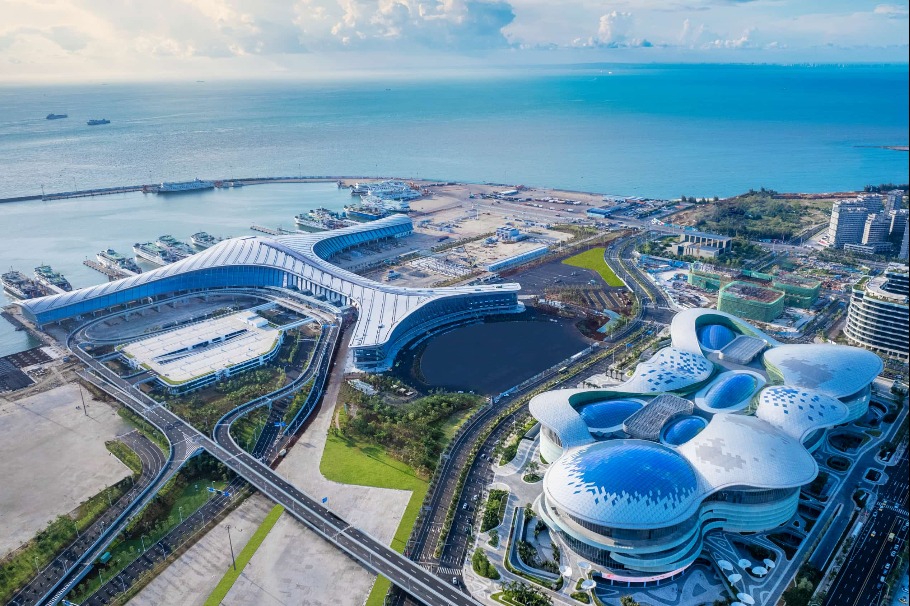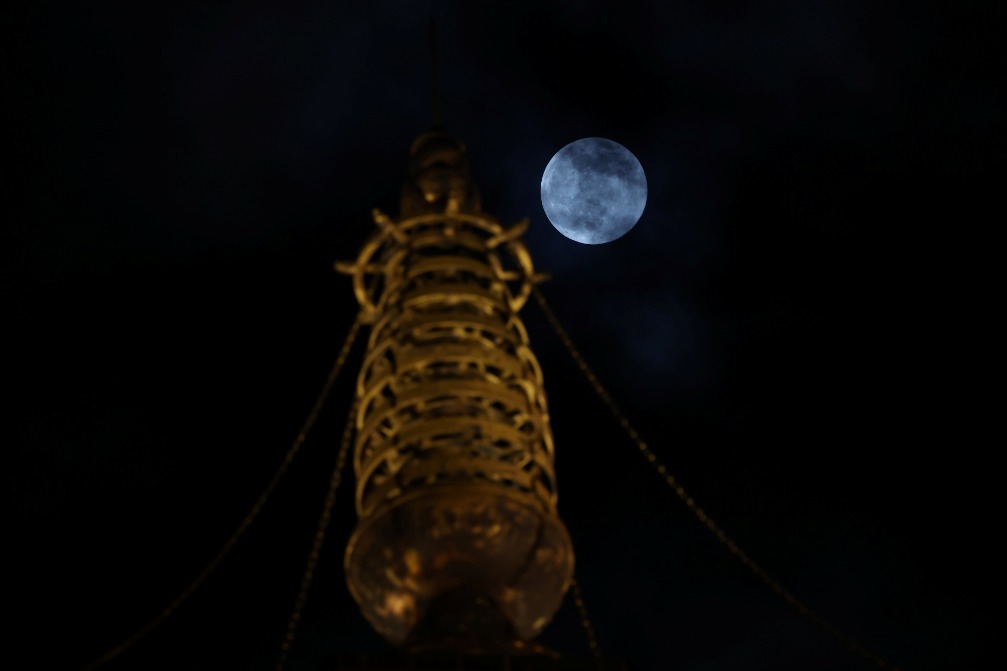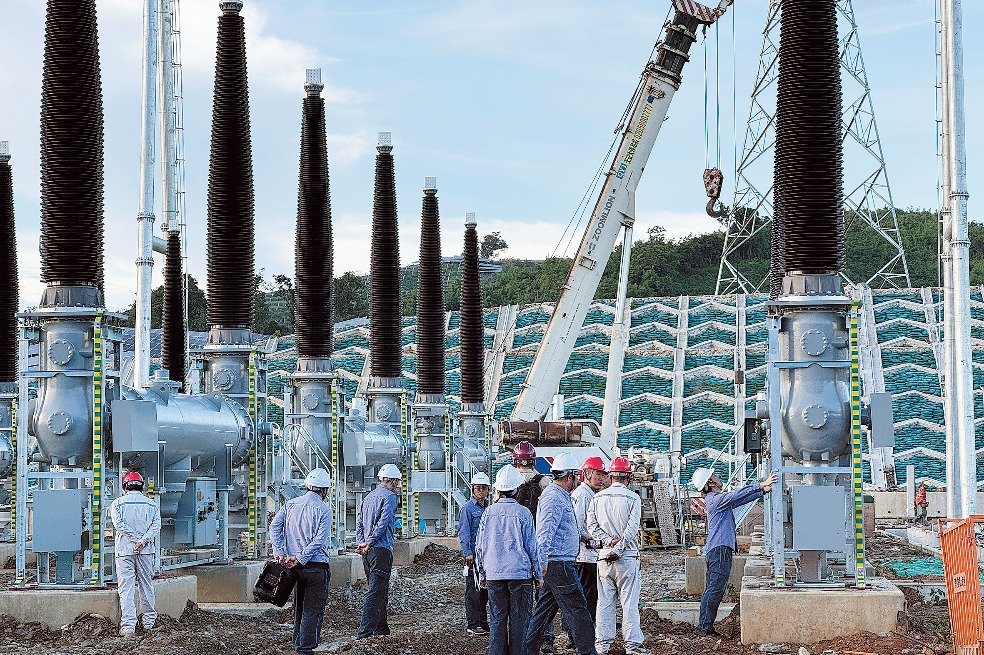Chinese coach bounces around world

A master of ping-pong remains an ambassador of china and a mentor to young Belgian players
Wang Dayong, 69, a Chinese retiree, arrives early wearing his red and blue sporting outfit and sneakers at a ping-pong club at the Brussels-Centre Sportif d'Auderghem on Wednesday and Friday afternoons and Saturday mornings.
These are the time slots when the youngest ping-pong enthusiasts train. Wang walks around with his old-fashioned coach's clipboard, basically some printed sheets attached to a worn wooden board on which he notes all kinds of data on the young players, aged 6-8. From time to time, he stops in front of a few kids and instructs them on the basics of serving and receiving the ball.
| Wang Dayong, the first Chinese coach to train a European table tennis player, currently works in Brussels to train Belgium's young ping-pong hopefuls. Fu Jing / China Daily |
Since his retirement from the Belgian national table tennis team, Wang's self-assigned mission has been to recruit talent for the Belgian table tennis player pool. All the children's parents in the club sooner or later come to understand that if their kids have been spotted by Wang, they might have a chance for glory like Wang's best-known Belgian "disciple", former champion Jean-Michel Saive.
Twenty-five years ago when Wang, on a two-year contract, arrived in Belgium, a country with no ping-pong history, he did not feel completely welcome. No Chinese coach had trained a European player while European players doubted whether such a coach, equipped with what they called "Chinese tricks", would fit in.
Invented in England, ping-pong became China's national sport in the 1950s when China won the first ping-pong championships, helping change Western ideas of China as the "sick man of Asia".
Ever since, in China, ping-pong players and coaches have been treated as celebrities. Primary and secondary schools that have discovered and trained table tennis talent from a very young age have benefited from funding and favorable policies from the central government.
The secrets of China's long domination of the sport have become legendary around the globe. In fact, it relied in part on simple, solid training in the basics, like in the Chinese martial arts or any other kind of sports.
For Wang, the Belgian players always finished their practice sessions too early. Chinese ping-pong athletes train long and hard, and they spend huge amounts of time on the "boring" basics. They may be seen by foreign players as "machines", but that would not accurately sum up how much hard work and dedication they put in.
On his first morning with the Belgian national team, Wang asked the players to train on a set of movements for 20 minutes. The players shrugged him off, saying they could train only for seven minutes. They compromised on training for eight minutes, but Wang repeated the same session in the afternoon so that the total training for the single set added up to 16 minutes, still four minutes shy of his goal for them.
Wang says he was pretty shocked by this lack of work ethic. It was quite a different interpretation of the relationship between coaches and players. In China, coaches serve as masters while the players are the disciples, based on mutual trust. The disciples normally and unconditionally obey the coaches. The Belgian players regarded this as "blindly following" the coaches.
There were other differences. Chinese ping-pong is results-oriented, making their matches short, flexible and fast. Many Chinese players spend months working on serving techniques as a winning strategy flipping and spinning while European players prefer graceful spinning and driving performances on the table.
But Jean-Michel Saive soon adapted to this new kind of relationship, and Wang became his "coach, friend and second father", he says.
"Few coaches and players have a relationship of more than 20 years. What is important is that we have stayed together not only in the good moments but also in the dark moments, when we try to catch up with the fast-changing techniques and rules in table tennis," Saive says.
He also learned from Wang some small details that European players often ignored: different variations of serving, how to read the spin in the service of the ball, how to play around the net.
The two complemented each other. Saive is young, energetic and screams a lot during the games, while Wang is more mature and is always there to cool him down. But the biggest thing about training with Wang is that it has given Saive an opportunity to understand what the Chinese think of European players and see the possibility of winning some top matches. In 1994 and 1995, Saive ranked No 1 in the world.
Wang was a pioneer of the overseas legion of Chinese coaches who left to coach foreign players. Wang had reasons to leave China: There were too many capable coaches there.
Wang was sent abroad for the first time by Chinese authorities as part of the county's ping-pong diplomacy in the 1970s, not to the United States but to developing countries like Somalia, Chile and Ecuador. He helped some players win championships in South America.
After that, Wang took an interest in intercultural exchange and helped set up a pioneering international ping-pong club in Beijing, which hosted 20 nationalities in the late 1980s.
But Wang felt there was more to do, and he ended up in Belgium. In 2001, Wang and his Belgian team witnessed a milestone in Belgian's table tennis history: The national team qualified for the final of men's table tennis in the team competition at the 46th world championships.
On the podium, however, Wang sang the Chinese national anthem. He later explained to his Belgian teammates that he was the Belgian team's coach but he is Chinese, and everything he had learned about table tennis was from China. Without it, he could not have climbed up the social ladder from a working class family.
Ping-pong has been Wang's lifelong career, but he also sees it as a platform for intercultural communications and exchanges. The sport breaks boundaries of body types and gender, it is not expensive and it exercises both the mind and body. It is a grassroots sport that you can play until you die.
"State-to-state relations thrive when there is friendship between the people," Wang says. He recently sent one of his best "Belgian disciples", 14-year-old Lindsay de Vos, to Beijing Sports University to master ping-pong and the Chinese language.
Lindsay cried every day for the first month; speaking no Chinese and very little English and the pressure of playing ping-pong against strong Chinese players were overwhelming. Wang stayed with her for two months on his own dime, introducing her to important contacts in ping-pong circles, and helping her with logistics like apartment hunting and training schedules.
Wang says that the learning process, for ping-pong and culture, always is mutual. Through his coaching experiences in Belgium, he has learned about the Belgian players' honesty, self-confidence and spirit of fair play. His future goal is to push for more internationalization of table tennis. After all, sports have become intertwined: Belgian table tennis teams hire a Chinese coach, while the Chinese tennis player Li Na has a Belgian coach.
Christophe Devaux, director of the Centre Sportif d'Auderghem, says it is hard to describe how Wang is different from European coaches because he is different from any other coach. "His passion for ping-pong, his experience with ping-pong and he as a person simply his being there sets a good example for all the other players and coaches."
For China Daily
(China Daily European Weekly 12/05/2014 page29)
Today's Top News
- China, Samoa exchange congratulations over 50th anniversary of ties
- China shows path to shared modernization
- China's vision expected to benefit Africa
- Cases show need to foster private sector
- Xi champions shared future in cyberspace
- China's growing role in tourism hailed at WTM































